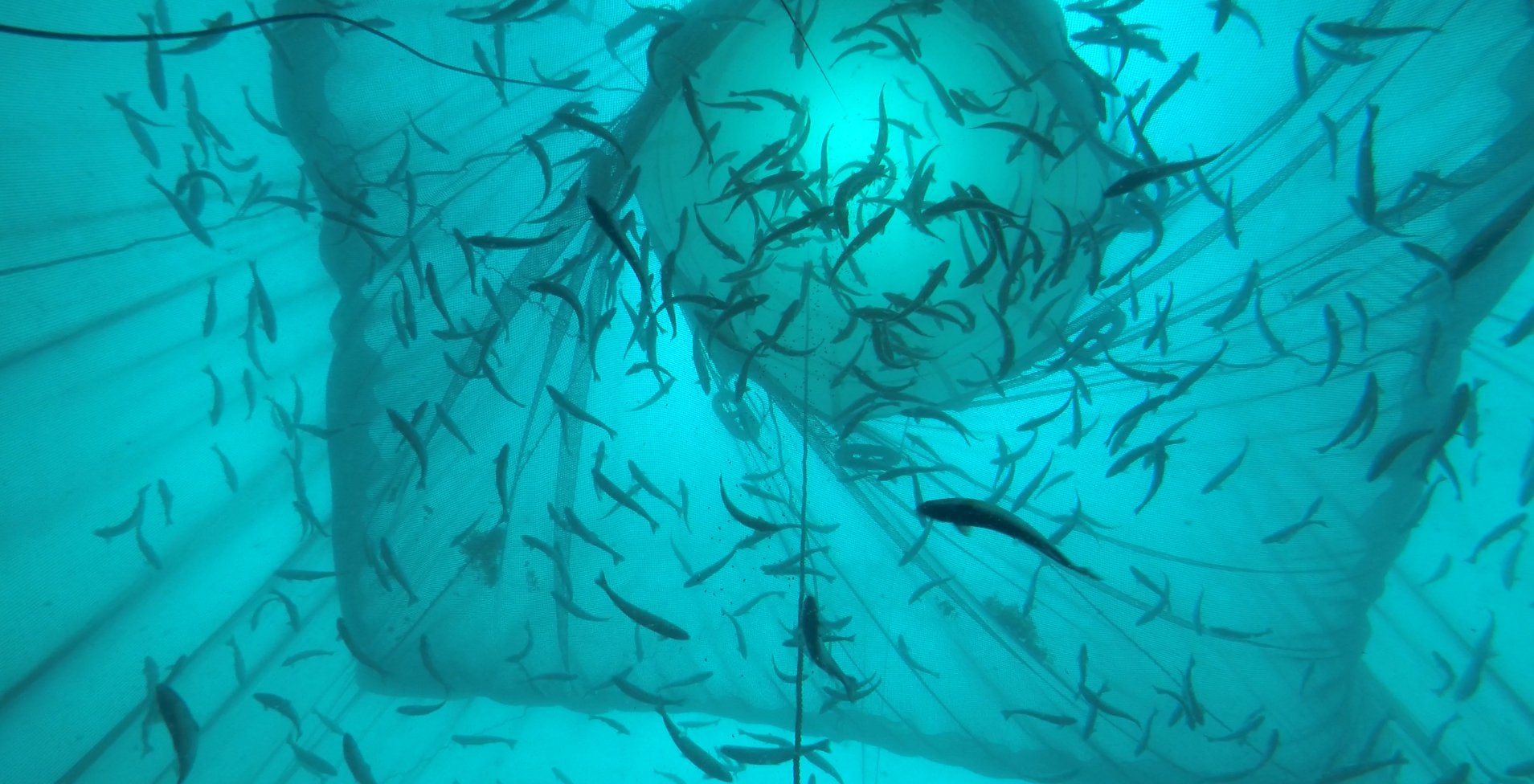
Sciences & Technology
Farmed salmon are deaf – and now we know why

Researchers have discovered fish have an innate ability to avoid parasite infection, paving the way for new methods to prevent outbreaks in farmed populations
Published 18 October 2017
Parasite infestation in fish farms is one of aquaculture’s biggest challenges.
In a rapidly growing industry, parasite outbreaks cause production inefficiencies, poor welfare for billions of fish and negative consequences for wild populations when diseases spread.

To help the industry fight parasite infestation in fish farms, a team from the School of BioSciences at the University of Melbourne has discovered an important weapon: the natural behaviour of fish themselves.
“Parasite outbreaks in wild fish have been induced by farmed fish in major farming systems, such as sea lice infestations on wild salmon in Europe and North America,” says aquaculture expert Associate Professor Tim Dempster.
“Parasite treatments are also stressful and contribute to the poor welfare of the animals. They include chemical bathing, freshwater bathing, medicated feed or other treatments applied directly to the parasite or host.”

In a first for aquaculture research, Associate Professor Dempster’s team looked at the inherent ability of salmon to avoid infection through their first line of defence - behaviour.
“We tested whether the world’s most widely farmed marine fish, Atlantic salmon, could defend themselves against parasites using various behaviours,” says Associate Professor Dempster.
By comparing salmon whose perceptions had been distorted by a mild sedative to those displaying ‘normal’ behaviours, they found the ‘normal’ fish acquired 30 per cent less parasites than fish in the sedated group. The study was recently published in the Journal of Zoology.

Sciences & Technology
Farmed salmon are deaf – and now we know why
“Our results clearly revealed that normal behaviours are adaptive against parasites,” says Associate Professor Dempster, an Australian Research Council Future Fellow.
“This helps us better understand the behaviours that help fish avoid infestation. There are over 100 species of fish under aquaculture production worldwide, yet until now, we have known almost nothing about their capacity to outsmart their main parasites themselves,” he says.
“Our study will help design fish farms that allow fish to fully display their important natural defensive behaviours. We might also be able to learn from these behaviours to create new methods to prevent infection.”
To work out if normal behaviours protected against infection, the team had to first create fish that did not behave normally.

“It wasn’t easy – we had to come up with a completely new method to tackle this question,” says lead author Dr Samantha Bui, a former PhD student at the University of Melbourne, now based at the Institute of Marine Research, Norway.
“We treated one group of fish with the dissociative anaesthetic ketamine. The anaesthetic allows the fish to remain active, but their senses are temporarily dulled, which alters their behaviour.
They found that the normal fish jumped out of the water and rolled on the surface six-to-seven times more than the sedated fish. But somewhat counter intuitively they found that the normal fish swam about less than the sedated fish.
“Jumping and motionless behaviours were less common in anaesthetised salmon, while the frequency of burst swimming increased with the anaesthetic,” says Dr Bui.
“The results show that these behaviours at normal levels reduce the ability of parasites to attach to fish.”

Environment
Meet Australia’s newest freshwater fish
How this difference in behaviour influences parasite infection is unclear and needs further study. There is previous evidence that fish that are less active or swim slowly are less prone to infestation, suggesting that reduced swimming can reduce exposure to lice waiting to encounter fish. But whether such slow swimming would be effective in avoiding parasites in farms where fish live at much higher densities is unclear.
As the researchers point out, artificial environments like farms may inhibit behaviours that mitigate the risk of infestation.
“This is particularly the case with the rise of aquaculture, with over 1 billion Atlantic salmon now held globally at high densities in sea cages, potentially restraining the ability or effectiveness of individuals to exhibit fine-scale anti-parasite behaviours,” they write.
Modern aquaculture is in a phase of incredible innovation of new farming systems, including the recent mooring of the world’s biggest fish cage in Norway, that will contain over 1 million fish. Each new farming system will change the behavioural settings for fish and how they interact with their parasites.
“Behaviour is not yet firmly in the toolkit of aquaculture, but it should be. Knowing what the fish can do themselves within farming environments is key to success,” says Dr Bui.
The team’s results are already being used to advise the design of new aquaculture structures, in a review to be released early next year.
This could lead to increased production efficiencies and improved welfare for billions of animals.
Banner image: iStock